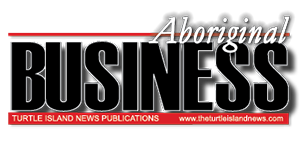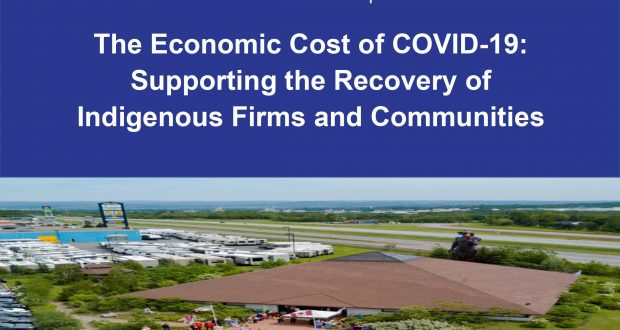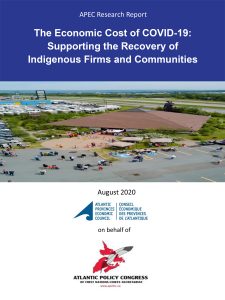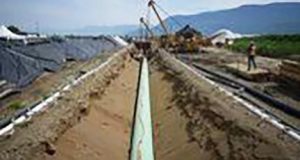By Oscar Baker III
Local Journalism Initiative Reporter
SYDNEY, N.S.-The Atlantic Provinces Economic Council released a report on the state of Indigenous businesses and the effects of COVID-19,
titled the Economic Cost of COVID-19: Supporting the Recovery of Indigenous Firms and Corporations.
The study showed that preexisting conditions have only exacerbated the problems Indigenous businesses are facing during the pandemic. Indigenous communities and their businesses are still struggling to find willing lenders.
The Indian Act prohibits Indigenous people from using land on reserves as collateral so borrowing remains an issue for communities and their businesses.
`First Nations communities just don’t have as many options,” said Fred Bergman, a senior policy analyst at APEC.
He explained many governments and businesses were all caught off guard by the COVID-19 pandemic but non-Indigenous governments and businesses could borrow money to offset the rising costs of operating during a pandemic. But those avenues remain a barrier for Indigenous people. And the access to relief packages for Indigenous-owned businesses is also strained.
One example is the Canada wage subsidy plan, some Indigenous businesses are not incorporated or work under tax exemptions while on reserve, so his company suggests broadening the rules so all Indigenous businesses have access to federal relief.
“There should be equitable treatment for all,” said Bergman.
And saving Indigenous businesses means helping the greater economy. Bergman said in Atlantic Canada, Indigenous businesses helped create about 12,000 new jobs last year with 40 per cent going to non-Indigenous people. And that doesn’t include the importance of those businesses to the greater supply chain.
Many Indigenous businesses are in the fishing, gaming, retail and hospitality sectors and were hit significantly hard by the pandemic.
The report saw a 40 per cent drop in resource revenue which may spell disaster for some communities, where much of their community services are financed through those revenues.
“There would be a significant drop in community wellbeing,” said Bergman.
He thinks because of the rural nature of many First Nation communities may have contributed to the business’s hardships.
Unequal access to broadband internet may have played a role also; while many businesses turned online to meet social distancing requirements some First Nation communities were limited because of it. Bergman also speculates because some communities set up checkpoints to slow the flow of traffic into their communities it may have limited the amount of foot and car traffic to those businesses.
Bergman says another recommendation is to see the federal government double its $610 million Indigenous community support fund to help the maligned businesses. The businesses’ future looks bleak without support.
“We asked how many businesses could survive another year without support and only eight per cent could survive another year on their own without further supports. While 4-of-10 non-Indigenous businesses could survive one-year with supports,” said Bergman.
For Bergman, it’s all about saving the core of the businesses because the losses have been heavy in the tourism industry. He estimates that the tourism industry in Atlantic Canada accrued a $3.3 billion loss and it can take years for businesses to recoup those losses, and that means many will go under.
He’s hopeful with better supports those businesses can avoid closing and having massive layoffs. But it’s clear a second wave of the pandemic or a prolonged pandemic season can spell disaster for Indigenous-owned businesses in Atlantic Canda.
Oscar Baker III is a Local Journalism Initiative reporter who works out of the Cape Breton Post.. The Local Journalism Initiative is funded by the Government of Canada.
 Aboriginal Business Magazine Your source for Aboriginal Business News
Aboriginal Business Magazine Your source for Aboriginal Business News





